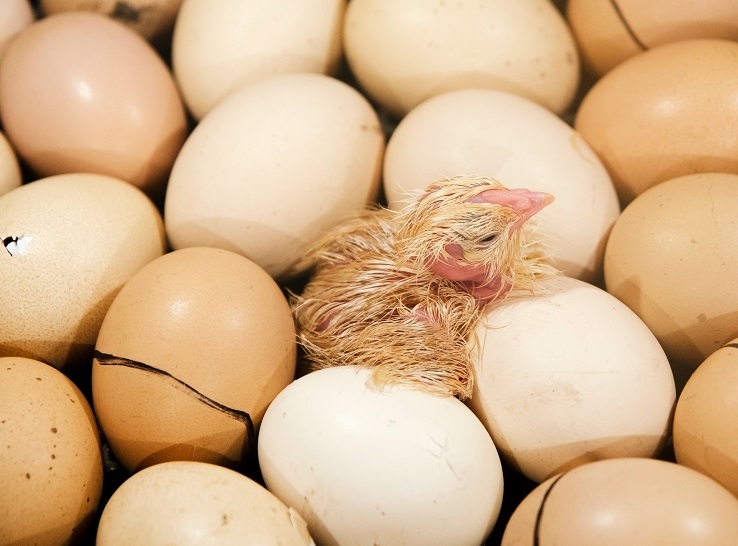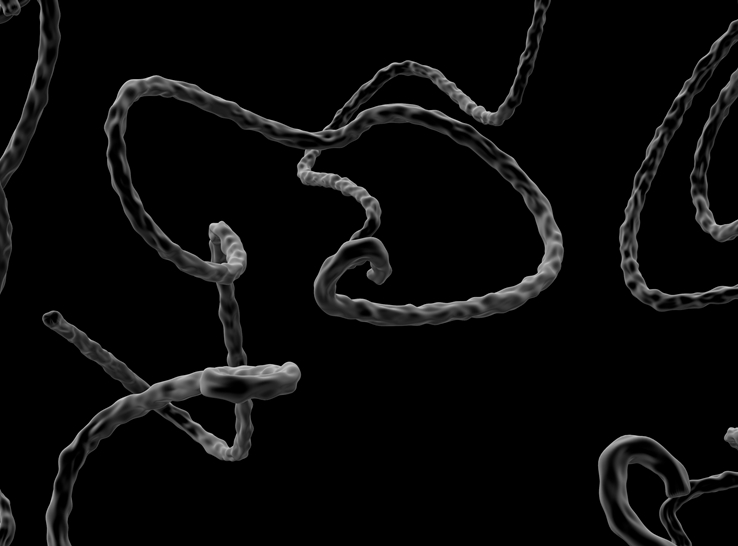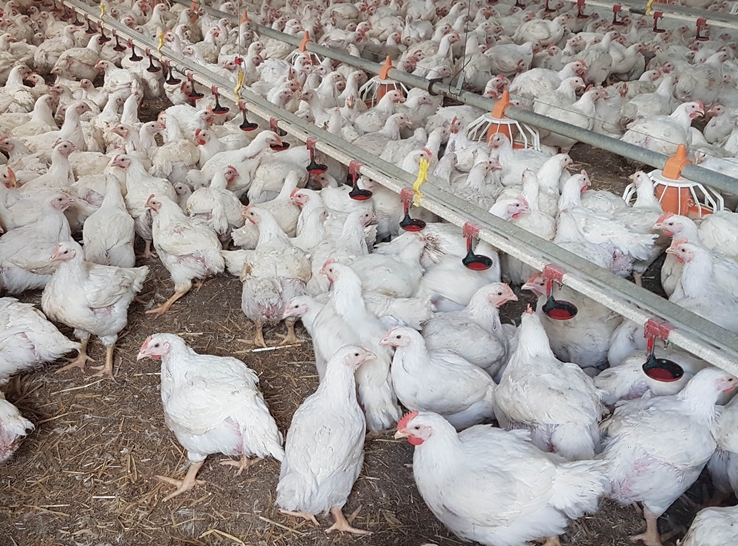By Shreeya Sharma
Graduate research assistant
Department of Animal and Veterinary Sciences
Clemson University
Chicks enter the world with underdeveloped immune systems, presenting modern poultry farming with a critical challenge. Our study gives rise to an innovative solution: injecting beneficial bacteria directly into fertilized eggs to boost immunity from the very start.
We delivered poultry-specific Lactobacillus strains into 18-day-old embryos, then tracked their impact on gut health and immune development. The results suggest a potentially revolutionary approach to poultry gut health.
The immunity gap
Broiler chicks face a harsh reality: They hatch directly into hatchery environments filled with microbes, yet their immune systems remain underdeveloped for up to 2 weeks. While they are directly exposed to bacteria, viruses and fungi in hatcheries and grow-out houses, their gut defenses — particularly the bursa of Fabricius and gut-associated lymphoid tissue — are still in early development.
Without maternal antibodies or a mature microbiome, the chicks rely on innate immunity during this period, leaving them highly susceptible to pathogens like Salmonella, Escherichia coli and Campylobacter, which are leading causes of foodborne illnesses in humans.
Modern hatchery sanitation, although essential for reducing pathogen load, inadvertently eliminates beneficial microbes that would naturally seed the gut. The result? A delayed immune response that leaves chicks vulnerable.
Our research demonstrates that in ovo probiotic supplementation can bridge this gap by inoculating chicks with immune-boosting bacteria before they even encounter hatchery microbes. By administering poultry-specific Lactobacillus strains at embryonic day 18, we accelerate the development of B cells, cytokines, gut barrier function and the gut microbiome, ensuring broilers are better equipped to handle the bad guys from day 1.
This approach not only reduces early mortality but also primes chicks for stronger growth performance and promotes flock resiliency.
Cracking the code of chick immunity before hatch
Our previous research shows that key immune responses are already underway inside the egg. By analyzing different parts of the developing intestine, we found that each region, such as the cecum and jejunum, plays a special role. Around day 20 of incubation, the cecum starts ramping up its production of protective molecules, like cytokines, to help fight off infections. Meanwhile, the jejunum demonstrates a burst of antimicrobial peptide production to defend against bacteria and viruses.
Building better B cells before birth
The bursa of Fabricius, a unique lymphoid organ found only in birds, serves as the primary site for B-cell development. Our research reveals that the L. acidophilus probiotic induces significantly greater expression of several key regulators of B-cell survival and maturation: BAFF (B cell-activating factor), BAFF-receptor and TGF-β, a regulator of antibody diversification.
From lab to hatchery
Our research shows in ovo probiotics deliver three key benefits: stronger immune priming, better gut health and improved hatchability. Administering probiotics at embryonic day 18 enables chicks to develop enhanced bursal function, suggesting improved vaccine response potential.
It is clear that in ovo probiotics represent a groundbreaking approach to building healthier, more resilient flocks from the inside out. As the need for antibiotic alternatives grows increasingly urgent, this research lights the way toward more sustainable poultry production in an industry facing disease pressures.
* * * * * * * * * * * *
This work is conducted under the mentorship of Khaled Abdelaziz, PhD, BVSc, principal investigator in the Department of Animal and Veterinary Sciences at Clemson University, whose research focuses on antibiotic-free approaches to improve poultry immunity and food safety.
Inspired by these findings, our upcoming research will focus on a microbiome-centered approach to mitigating foodborne pathogens. Using 16S rRNA gene sequencing and pathogen load quantification, we will assess how these interventions influence microbial succession, immune gene expression and intestinal barrier function.
References
Sharma S, Alizadeh M, Pratt S, Stamatikos A, Abdelaziz K. Differential Expression of Key Immune Markers in the Intestinal Tract of Developing Chick Embryos. Vet Sci. 2025:12(2);186. https://doi.org/10.3390/vetsci12020186
Sharma S, Kulkarni RR, Sharif S, Hassan H, Alizadeh M, Pratt S, Abdelaziz K. In ovo feeding of probiotic lactobacilli differentially alters expression of genes involved in the development and immunological maturation of bursa of Fabricius in pre-hatched chicks. Poult Sci. 2024:103(1);103237. https://doi.org/10.1016/j.psj.2023.103237






